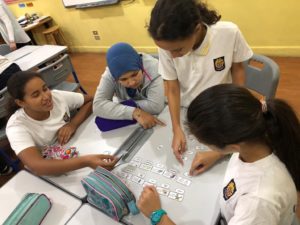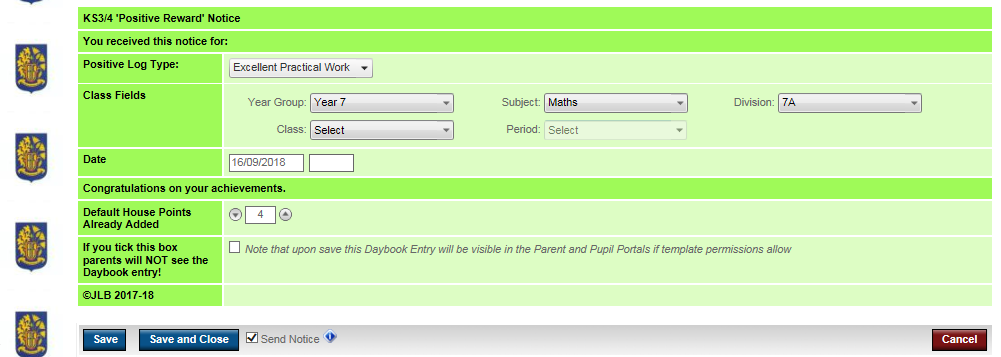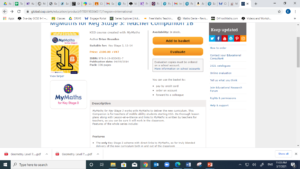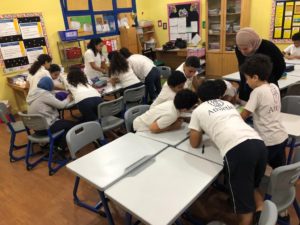Key Stage 3 Maths at Egypt British International School
EBIS offers the ILOWER PEARSON qualification at the end of year 9. We use different ways to prepare our students not only to pass this qualification but others too that are offered elsewhere for the same year group.
As the head of EBIS Maths Department, I would like to welcome you and introduce you to our department vision, which is “The goal of our department is to promote learning with understanding.” this could happen by many ways including:
- Enhance mathematics learning significantly by adopting cooperative learning

- Classroom management and motivation strategies to improve student outcomes, As using our “Engage Portal” to create a day book for each student.

- Professional development, offering multiple internal and external workshops and training opportunities for staff.
- A successful scheme of work that can support the progress of all abilities.

and more PEARSON endorsed schemes.
Elaborating more on EBIS schemes of work, we chose, tried and tested schemes that have been created by expert teachers and mathematicians to inspire pupils with confidence and pleasure in maths, and provide them with the skills and knowledge they need to progress to success at GCSE level and beyond.

The schemes that we are using have been updated to ensure that it:
- fully meets the requirements of the 2014 National Curriculum (latest curriculum)
- reflects the latest thinking on best practice for maths teaching at this level
- includes contexts and examples that are completely topical and relevant to pupils’ lives
- accompanied by state of the art digital resources, made available on
Aims and features of our schemes
The core aim of these schemes is to ensure that every pupil makes progress at the right pace for them, helping them to make the transition from Key Stage 2 successfully and equipping and preparing each and every pupil for future study of maths at GCSE level.
- Integrated throughout all of the components of the schemes are questions that develop pupils’ mathematical fluency, reasoning and problem-solving skills, preparing them for the three new GCSE Maths assessment objectives which will evaluate these skills.
- We also provide further targeted work to help pupils prepare for and transition to GCSE-level study.
- Real-life contextualisation of each topic, providing motivation to learn.
- Clear topic presentations that ‘show rather than tell’, using pictures, diagrams and meaningful examples to help pupils gain real conceptual understanding.
- Practice exercises that consolidate and build on pupils’ prior knowledge from Key Stage 2 with questions that gradually build in difficulty. Progress indicator icons show pupils the level they are working at.
- Progress tracker checklists that offer an opportunity for self-assessment, and show pupils what they need to do to progress.
- End-of-chapter review questions that make links to other related areas of maths, helping pupils to integrate their learning and see the ‘big picture’.
- Activities spread that provides an opportunity for more extended investigative, problem-solving or
- Mathematical reasoning work to fully embed learning and provide further stretch.
Our interactive resource this year is Mathelatics active learning
Mathletics is aligned to the UK and many other international curriculum including the IB program and will enable your teachers to set fun and engaging practice and fluency activities for their students, challenge student thinking with problem-solving and reasoning questions, and reward their learning with certificates, points and virtual items. Access to Mathletics available both in class and from home.
Mathletics includes
- Comprehensive reporting
- Real time results for curriculum aligned activities and assessments by class, student and question.
- Differentiation
- Customisable courses – Use our course templates or design a bespoke course, or create something unique for a specific student.
- Adaptive – Activities within the courses are adaptive to adjust to students’ strengths and weaknesses.
Because each pupil will have their own login, we will be able to keep track of their progress on an on-going basis and share this information with you.
We are confident that your son or daughter will enjoy working with Maths Progress and that it will help them not only to learn maths, but to love it too.
If you have any questions that haven’t been answered here, you can find out more about Mathelatics at:
https://www.youtube.com/watch?v=UFX_qRooE_Q
Best regards,
The Maths department,
Eiman Mazhar
Maths Department Team
- Ms. Nada Abdel Hady
- Ms. Rana Abdou
- Ms. Mona Elwy
- Ms. Noha Fekry
- Ms. Eiman Mazhar




